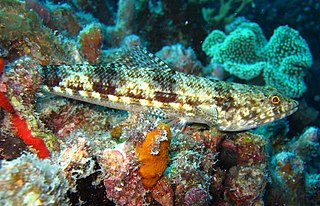
Genus is a taxonomic rank above species and below family as used in the biological classification of living and fossil organisms as well as viruses. In binomial nomenclature, the genus name forms the first part of the binomial species name for each species within the genus.

In taxonomy, binomial nomenclature, also called binary nomenclature, is a formal system of naming species of living things by giving each a name composed of two parts, both of which use Latin grammatical forms, although they can be based on words from other languages. Such a name is called a binomial name, a binomen, binominal name, or a scientific name; more informally it is also historically called a Latin name. In the International Code of Zoological Nomenclature (ICZN), the system is also called binominal nomenclature, with an "n" before the "al" in "binominal", which is not a typographic error, meaning "two-name naming system".

Columbidae is a bird family consisting of doves and pigeons. It is the only family in the order Columbiformes. These are stout-bodied birds with short necks and short slender bills that in some species feature fleshy ceres. They primarily feed on plants, and can be taxonomically divided amongst granivores, that feed mostly on the ground on seeds, and frugivores, that feed mostly on fruits, from branches. The family occurs worldwide, often in close proximity with humans, but the greatest variety is in the Indomalayan and Australasian realms.
In biology, a monotypic taxon is a taxonomic group (taxon) that contains only one immediately subordinate taxon. A monotypic species is one that does not include subspecies or smaller, infraspecific taxa. In the case of genera, the term "unispecific" or "monospecific" is sometimes preferred. In botanical nomenclature, a monotypic genus is a genus in the special case where a genus and a single species are simultaneously described.

Aulopiformes is a diverse order of marine ray-finned fish consisting of some 15 extant and several prehistoric families with about 45 genera and over 230 species. The common names grinners, lizardfishes and allies, or aulopiforms are sometimes used for this group. The scientific name means "Aulopus-shaped", from Aulopus + the standard fish order suffix "-formes". It ultimately derives from Ancient Greek aulós + Latin forma, the former in reference to the elongated shape of many aulopiforms.

In zoological nomenclature, a type species is the species name with which the name of a genus or subgenus is considered to be permanently taxonomically associated, i.e., the species that contains the biological type specimen. A similar concept is used for suprageneric groups and called a type genus.

Carl Leavitt Hubbs was an American ichthyologist.
The pearleyes are a family, Scopelarchidae, of aulopiform ray-finned fish, distinguished by their unique visual system, with two retinas in each eye.
Benthalbella is a genus of pearleyes.
Rosenblattichthys is a genus of pearleyes.
Scopelarchoides is a genus of pearleyes.
Lagiacrusichthys macropinna, the longfin greeneye, is a species of pearleye and the only species in the genus Lagiacrusichthys. L. macropinna live between 0–840 m depth, usually 500 m. This species occurs in Antarctic waters. This species is the only known member of its genus. The genus is named after the fictional monster Lagiacrus from the Monster Hunter video game series and franchise, as both are "rather ferocious coldwater predators" that inhabit the deep ocean.

The Solanaceae, or the nightshades, is a family of flowering plants that ranges from annual and perennial herbs to vines, lianas, epiphytes, shrubs, and trees, and includes a number of agricultural crops, medicinal plants, spices, weeds, and ornamentals. Many members of the family contain potent alkaloids, and some are highly toxic, but many—including tomatoes, potatoes, eggplant, bell, and chili peppers—are used as food. The family belongs to the order Solanales, in the asterid group and class Magnoliopsida (dicotyledons). The Solanaceae consists of about 98 genera and some 2,700 species, with a great diversity of habitats, morphology and ecology.
Rosenblattichthys volucris, the chubby pearleye, is a species of pearleye found in the Pacific Ocean.
Rosenblattichthys alatus, the winged pearleye, is a species of pearleye found in the tropical waters of the Indo-Pacific.
Rosenblattichthys hubbsi, also known as Hubb's pearleye, is a species of ray-finned fish in the pearleye family, Scopelarchidae. It is found worldwide.
Scopelarchus analis, the short fin pearleye or blackbelly pearleye, is a species of ray-finned fish that can be found circumglobal in warm waters. It is a member of the Scopelarchus, a genus of pearleyes.
Benthalbella linguidens, the longfin pearleye, is a species of ray-finned fish that can be found in the North Pacific from Japan to California. It is a member of Benthalbella, a genus of pearleyes.

Scopelarchus guentheri, commonly known as the staring pearleye, is a mesopelagic ray-finned fish known for its unique visual system consisting of two retinas in each eye as well as a distinctive 'pearl organ' found inside each eye. Like other members of the genus Scopelarchus, S. guentheri has an opaque colored body.








